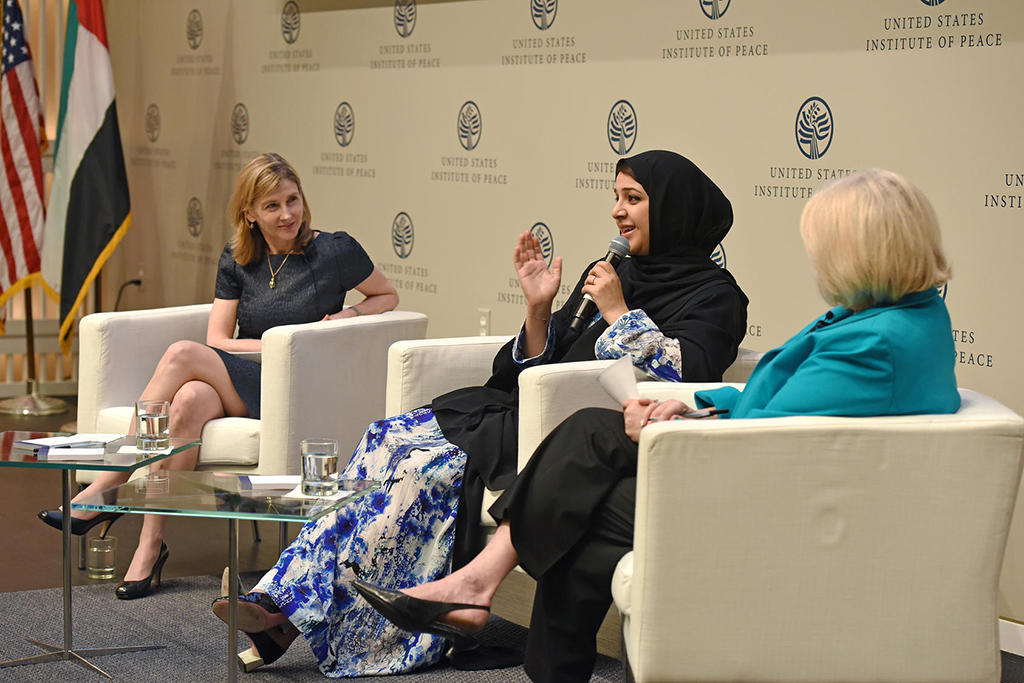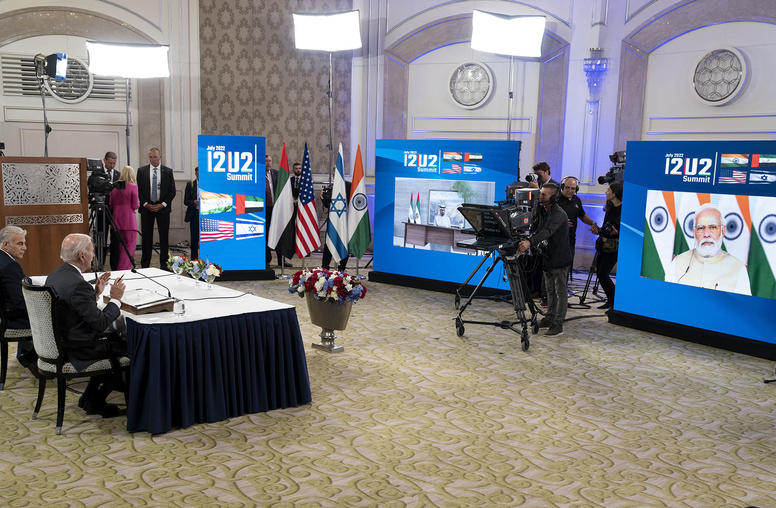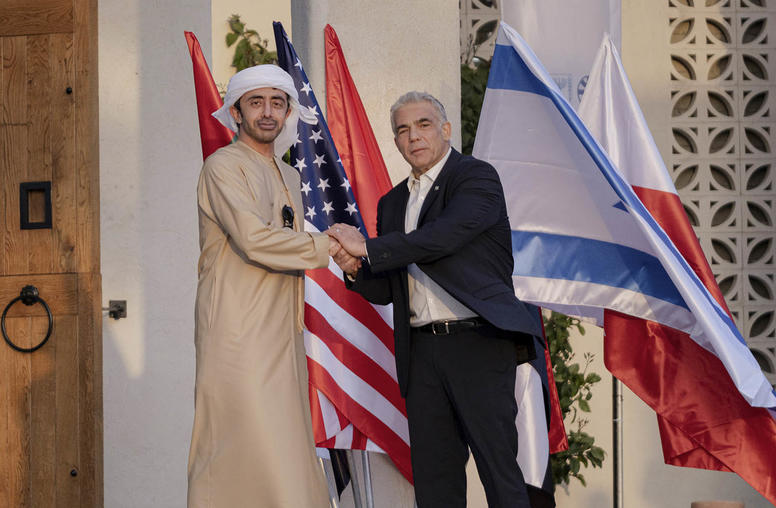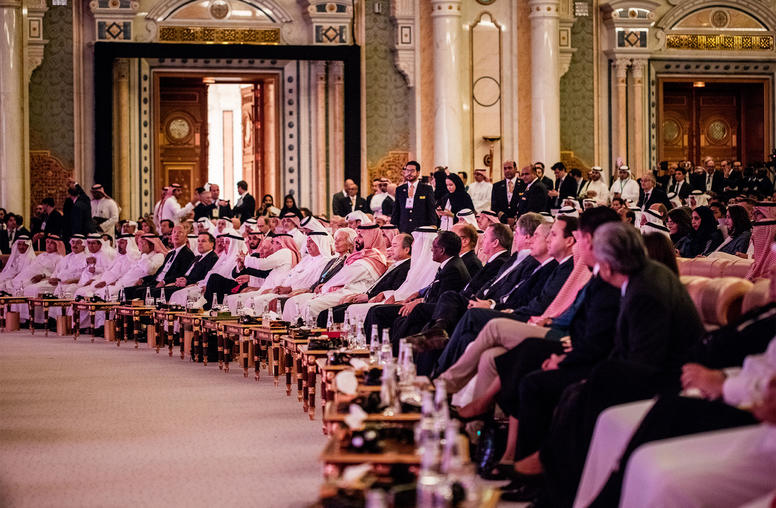Third Annual Sheikha Fatima Lectureship: Women and Peacebuilding
Building international peace and security requires women’s participation and leadership. That principle underlies the work of the U.S. Institute of Peace and is the focus of its annual Sheikha Fatima Lectureship. The 2015 event, on May 11, Third Annual Sheikha Fatima Lectureship addressed "A Shared Global Vision for Women and Peacebuilding.”

Minister Al Hashimy manages international affairs in the office of the UAE prime minister, and holds responsibility at the foreign ministry for relations with India, Pakistan and sub-Saharan Africa. She has served as Deputy Chief of the UAE Embassy in Washington. USIP President Nancy Lindborg moderated this year’s lectureship.
Speakers in earlier years included U.S. Under Secretary of State for Public Diplomacy and Public Affairs Tara D. Sonenshine; Margot Wallström, currently the Swedish foreign minister; Baroness Nicholson of Winterbourne, a member of the UK House of Lords; and Ambassador Melanne Verveer, Executive Director of the Georgetown Institute for Women, Peace and Security.
As part of USIP’s focus on building the role of women in the peaceful resolution of conflicts worldwide, the Institute named the series of commemorative lectureships for Her Highness Sheikha Fatima bint Mubarak Al Ketbi, the wife of the late Sheikh Zayed bin Sultan Al Nahyan, Founder and First President of the United Arab Emirates.
A luncheon followed the program at noon.
Speakers
Her Excellency Reem Al Hashimy
Minister of State, Cabinet of the United Arab Emirates
Nancy Lindborg
President, United States Institute of Peace
Ambassador Melanne Verveer
Executive Director, Georgetown Institute for Women, Peace, and Security



